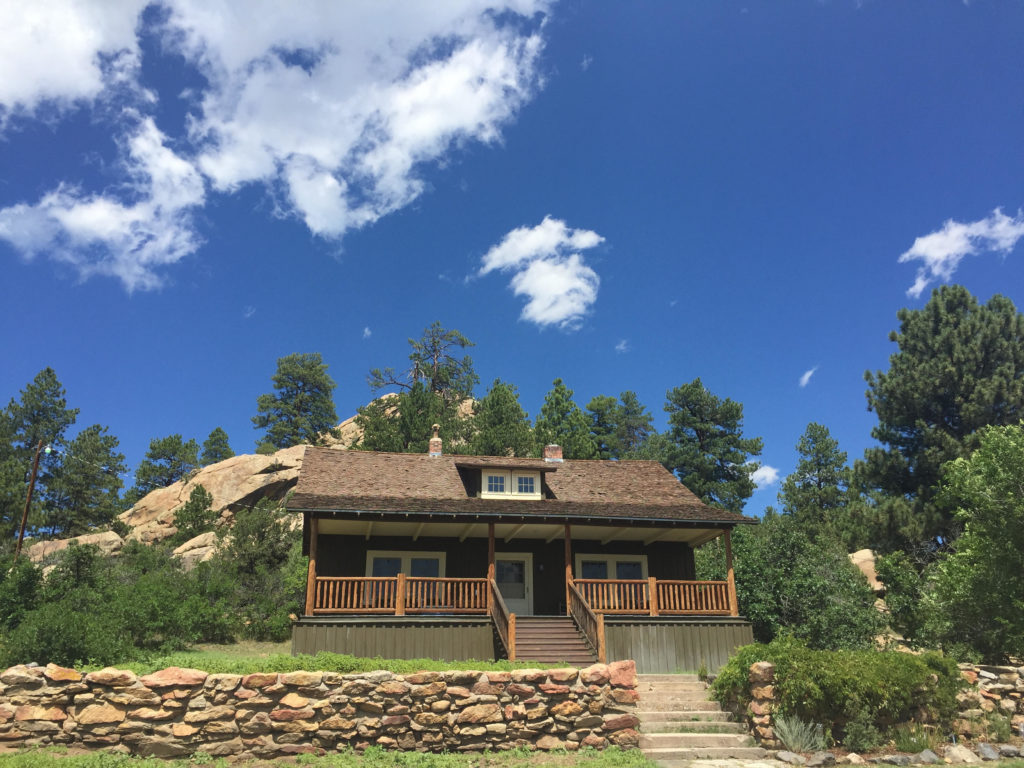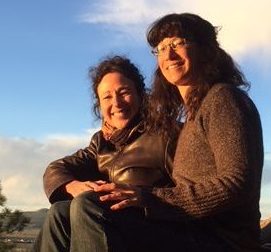
“Mi Casita,” Aldo and Estella Leopold’s home in Tres Piedras, NM, now the site of the Leopold Residency Program. Photo courtesy of Andrea Clearfield.
Conservationist, forester, philosopher, educator, writer, and outdoor enthusiast Aldo Leopold (1887-1948) is considered the father of wildlife ecology. Leopold underwent a transformation in his perspective on wildlife through a life spent in engagement with the natural world. Leopold writes of one such pivotal moment in essay “Thinking Like a Mountain,” in which he and his friends shot at a mother wolf and her pups:
“We reached the old wolf in time to watch a fierce green fire dying in her eyes. I realized then, and have known ever since, that there was something new to me in those eyes – something known only to her and to the mountain. I was young then, and full of trigger-itch; I thought that because fewer wolves meant more deer, that no wolves would mean hunters’ paradise. But after seeing the green fire die, I sensed that neither the wolf nor the mountain agreed with such a view.”
Leopold would come to understand wolves’ crucial role in the health of ecosystems, which was proven by the successful reintroduction of wolves into Yellowstone National Park decades after Leopold’s time. (Justin Ralls explored this topic in an essay and composition for Cadillac Moon Ensemble, Of Wolves and Rivers, for Landscape Music’s National Parks centennial concert last year.)

Andrea Clearfield, left, and Ariana Kramer, right. Photo courtesy of Andrea Clearfield.
Leopold’s legacy lives on through the Aldo and Estella Leopold Residency Program: a monthlong retreat at the Leopolds’ first home in northern New Mexico, owned by Carson National Forest and hosted by the Leopold Writing Program. This past August, the residency program—usually reserved for environmental writers—hosted an unusual project: Transformed by Fire, a collaboration between renowned Philadelphia-based composer Andrea Clearfield and poet and freelance writer Ariana Kramer from Taos, NM. Their song cycle for baritone and chorus takes Leopold’s writings as a jumping-off point for a musical and poetic exploration of wolves and their role in our ecosystems.
Last June, prior to their residency and the subsequent concert performance of their work-in-progress, I sat down with Andrea and Ariana in Taos to discuss the origins and goals of Transformed by Fire. The following excerpts from this interview offer a snapshot of the formative, early stages of their collaboration—a glimpse into their creative process. Continue reading
